When it comes to prepping and survivalism, I’m a straight shooter, and I like to tell people the truth about these topics. I believe being honest is the way to go because you avoid creating high hopes and expectations for those new to these “lifestyles.”
That being said, let’s have a difficult conversation. Let’s talk about those who die first in a crisis. It might not sit well with you, and you might not enjoy reading this article because you or someone close to you might fall into one of the categories of people I’m going to mention in the following paragraphs.
Rest assured, I empathize with the frustration you may be experiencing after reading all of this. The topic at hand is far from pleasant, and the harsh reality of many individuals facing the aftermath of a SHTF event is unsettling, to say the least. However, there’s no benefit to sugarcoating. Numerous examples worldwide illustrate that casualties are unavoidable in the event of a large-scale disaster.
A while back, there were attacks in certain parts of the country that were meant to cripple the electric grid. The attacks on various electric substations, I believe, were just a test run to figure out the vulnerabilities of our power grid.
Consider a coordinated attack striking both the East and West coasts simultaneously. While the loss of power across vast areas would undoubtedly be the most conspicuous impact, the true cause for concern lies in the duration of the power outage. The disruption of communication, public utilities, and emergency services—just to name a few—would induce widespread panic and confusion, surpassing even the initial darkness engulfing entire cities.
As days go by without power, things will deteriorate dramatically since the most basic resources will be gone in just a few days. Water treatment facilities, transportation, and the supply chain would stop functioning, and even your refrigerated food would go bad if you can’t keep the power flowing. Sure, generators will provide some temporary relief, but I doubt many folks have enough fuel to keep them going for as long as needed.
Our society will start to boil, and remaining law enforcement and emergency services will be overwhelmed and understaffed (since those folks have to take care of their own as well). Looting and violence will become the norm as desperation sets in.
Days turn into weeks, and weeks into months. The grim reality starts to settle in, and the death toll will rise, not from the immediate impact of the power grid failure but due to its prolonged effects and consequences.
The truth is that only preppers and survivalists have reasons to stay optimistic, and only if they did their homework and planned for such an SHTF event. At least we are aware of the dangers governing our world, and we take steps to protect ourselves from such dangers. Even so, many people will die, and among those people, we will also find preppers.
One of the topics I’ve raised during my meetings with other fellow preppers is, “Who dies first?” I’ve heard a lot of opinions, and here is my list of who goes first when the brown stuff hits the fan.
1. People with physical weakness
In my opinion, this is the first group that will suffer extreme loss, and it’s quite a diverse group. People in this category are usually dependent on others to survive, and in first-world countries, there is a finely tuned system of technology and network care that will be incapacitated almost immediately in times of crisis.
The first to go are those with physical disabilities who are almost entirely dependent on others to survive, whether they be loved ones or professional caregivers. Those with mobility issues due to a certain injury or disability will have a hard time evacuating if need be. For example, a wheelchair-bound person will most certainly find themselves trapped, and chances are no one with a wheelchair van will come anytime soon.
Then, there are the elderly who have to deal with the effects of aging and the health issues it brings along. Many of the people in this category, especially in our country, need prescription medication and routine medical care to deal with health problems. For them, going a few days without these conveniences could be life-threatening. Most of them have to deal with diabetes or hypertension, and you can imagine how the stress of an SHTF event will amplify their symptoms.
Besides the elderly, a particular group of people, the children, are extremely vulnerable. This is obvious for infants and toddlers, and only parents know how much work is needed to keep them alive and healthy. Their survival is heavily dependent on their guardians, and their chances of survival are linked directly with the level of preparedness of their parents.
People with chronic conditions also face a dire predicament when the crisis disrupts medical services, and you can imagine that requiring dialysis during such a time is an almost impossible task. The same goes for people who need a steady supply of oxygen or those relying on various medical equipment to keep them alive.
I once talked about emergency preparedness within a small community, and they told me that some children have allergies, and one of them has epileptic seizures and often requires anti-seizure drugs. I’ve told them that for them, it should be a priority to obtain medications such as EpiPens and the ones needed for the kid suffering from epilepsy. They would also have to figure out how to obtain more of such items when professional healthcare is not available.
In the physically weak category, I will also include the “out of shape” folks, to put it lightly and not to offend anyone. If you’re a couch potato, your chances of survival are slim during a crisis because there will be instances where physical endurance and dexterity will be needed to survive the ordeal. The good news for these folks is that compared to the other categories of people listed here, it’s much easier to get in shape than they believe.
2. People with mental weakness
There are people with various types of mental weaknesses out there, and some may deal with such weaknesses without even realizing it. Now, it goes without saying that those who suffer from grave mental illness that need constant supervision or the care of a guardian are the first to go. Dealing with an unstable person during an emergency is extremely difficult because they pose a danger to themselves but also to those around them.
Now, I’ve heard in the last decade that this country is dealing with a mental health problem at the national level, and mental weakness can vary from one individual to another. Some may have problems with figuring out their identity or gender, while others have had it with the hardship of life and the challenges it brings every day.
Even more frightening is that with the technological advancement of our society, there has also come a decline in common sense and survival instincts. We have become creatures of comfort, and it shows in our everyday life. The younger generation can’t go a few hours without the internet, game consoles, or gadgets, let alone a few days.
There are a lot of people experiencing extreme stress, depression, and anxiety during “times of peace,” and it seems they are somehow trying to learn how to live with these mental weaknesses rather than fixing them. Now imagine how these people will react during and in the aftermath of societal collapse.
I personally believe that people who are mentally weak will either turn against everyone around them, going bananas, to put it lightly, or they will take the easy way out and bite the bullet. Either way, their actions will have an impact on those around them, whether they be strangers or loved ones.
Even if you are a tough individual, there’s no telling how you will react in the face of adversity if you haven’t been in that spot before or in a similar situation. The mental strain of enduring the drastic alteration of your known world can exacerbate existing mental health issues or create new ones.
3. Unprepared people
In this category, you will find common folks (the non-preppers) but also preppers and survivalists who believe they have it all figured out. First of all, there are those who struggle to just get by, and there are many of them. In fact, I’ve recently read that 78% of Americans are struggling to live paycheck to paycheck. To me, this number is insane, and I’m sure these folks lack the means to prepare for whatever events you and I consider life-altering. In fact, they are so preoccupied with surviving tomorrow that they don’t make any long-term plans or prospects for their future. The lack of resources encompasses not just financial means but also the absence of information and knowledge.
Secondly, the disparity between those with ample resources and those without becomes evident when various events cause social upheaval. What begins as a peaceful march for justice usually turns into an opportunity for looting and violence. And when it comes to looting, it’s not the water and food that fly off the shelves, but rather electronics, clothes, and other expensive goods that aren’t very affordable to the general public. Looters will put themselves in danger and risk clashing with law enforcement just to get their hands on the latest iPhone and designer shoes. Imagine what would happen if food and water became their main priority, and they figured out you have plenty stockpiled in your home.
4. Leaders of various nature
History has shown us again and again that when things go south, people will look for those responsible and hold them accountable. While every problem has a root cause that may or may not be complex in nature, it’s guaranteed that the problem will be associated with someone’s leadership.
Leaders, regardless of whether they are part of a political or religious organization, have all the means to establish control in stable times. However, they may quickly become targets when the stability of their followers is threatened, and they fail to produce answers and solutions. Blaming it on someone else only works so many times, and they will no longer be able to pass the blame when everyone’s in the same boat. They become the focal point of public outrage, and they might die next, as the masses believe that by eliminating them, the problems these leaders created might also go away.
Concluding
If you fall into one of the groups listed here, I’m sorry to tell you that when the proverbial brown stuff hits the fan, your chances of making it out alive are slim to non-existent. However, there’s also good news, and you should know that you still have time to make preparations for whatever the future may throw at you. Now, in stable times, it’s time to plan for your next move and make sure you increase your survival chances by any means necessary. Remember, checking out should be your last option.


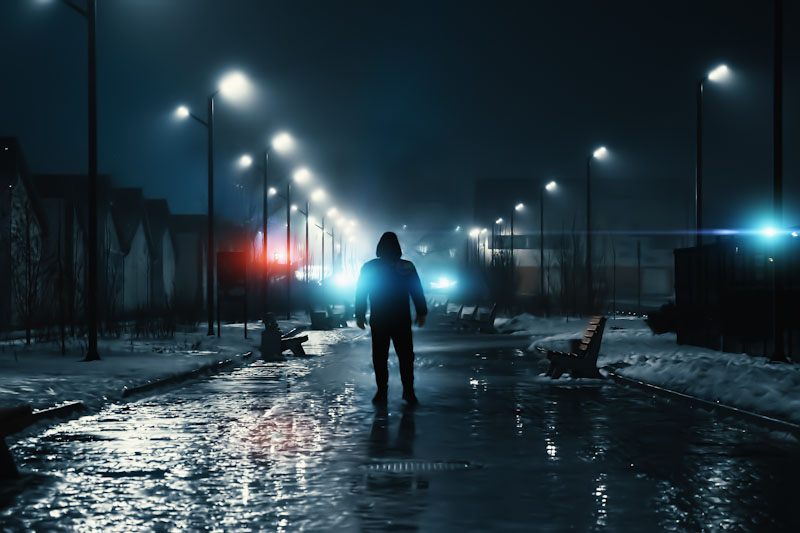
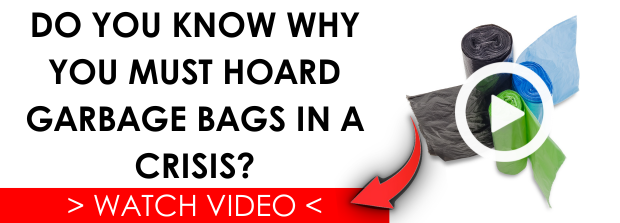

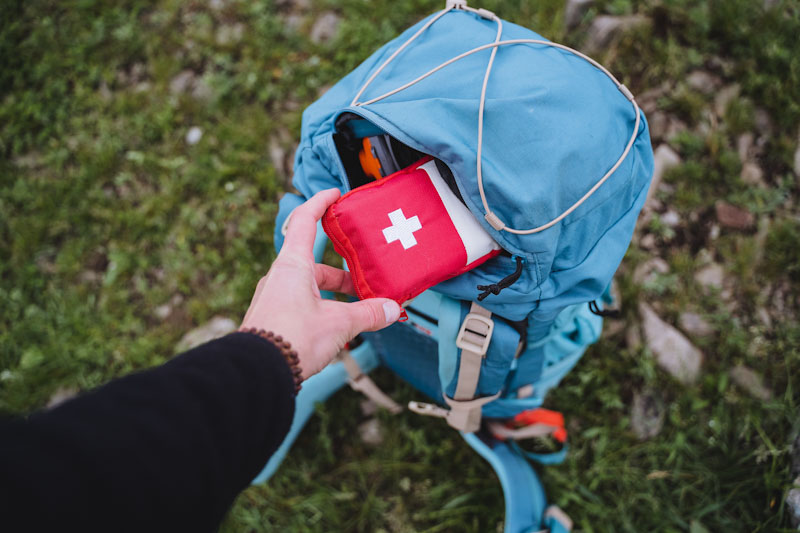
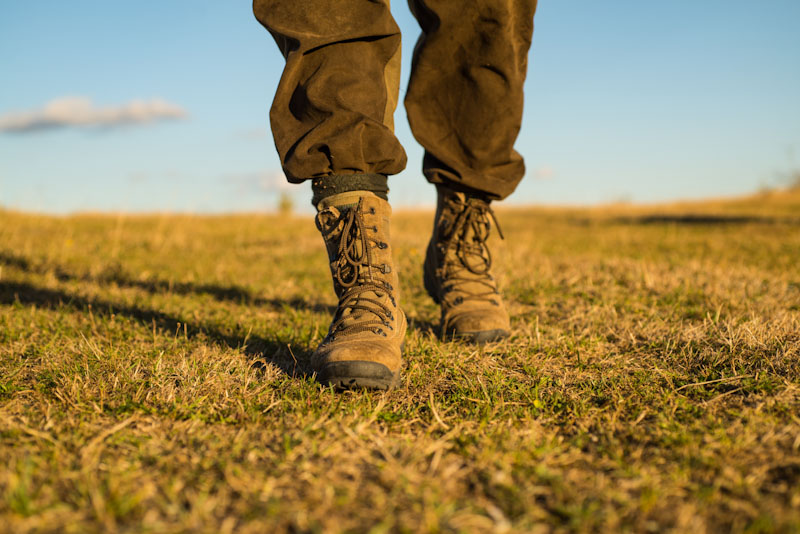
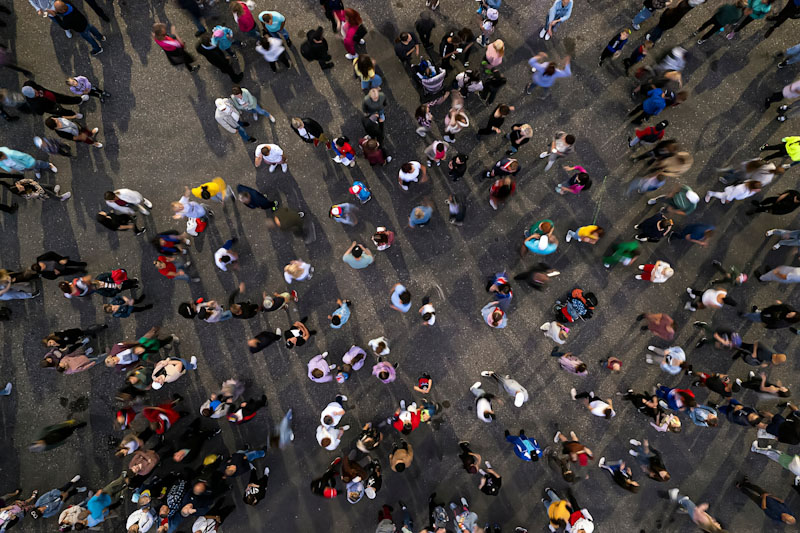


Shya | May 20, 2024
|
I’m in the first category, with several physical impairments and a spouse in the same condition. I have tried (and am still) to improve the situation in that regard but some things are irreversible. So I am trying to do better in all the associated ways, learning techniques that will aid us, and and stocking up on certain medications that will be needed yet hard to come by once the brown product bumps into the orbiting one.
I’m determined to outlast the initial hurdles, at least long enuff to see to it that my younger relations are better suited to longevity than they currently are. Some are just skeptical about the likelihood of needing to take measures against the “inevitable “ future.
Just call me the cynical conspiracy nut of the eastern part of our onetime wonderful nation.
TAL | May 20, 2024
|
Zager & Evens comes to mind with this article………………………………..In The Year “2025” IF man is still alive…………………………..
Shya | May 20, 2024
|
I hear the tune in my head as I read your words,,,,
Garyy | May 21, 2024
|
I love the prepper mentality, but as you say, it is impossible to cover all the basis. I think the real problem for many of us is the reality of either a total electrical grid shut down or a nuclear issue. If you are fortunate enough to spend $5K -$10K on a “good enough” solar system (portable), you probably can survive nicely with a solar system. However, if a nuke strike comes,, their is not time to go anywhere! So bend over and kiss this life goodbye especially if you live in a city or close to a “strike zone”.. So, I ask you, unless you live in a very rural area of this country, aren’t we kidding ourselves when comes to survival?.
Shya | May 23, 2024
|
I’m HOPING to get to that “very rural” area, if extended family says they can accommodate me and my wife, but I won’t know for a bit yet, and it will take me some time to travel there, assuming I hit the road before they “lock it down “. If they do that, there isn’t a viable alternative route, as there are several serious waterways en route. And transporting a solar array with the associated equipment will use space I need for other more pressing needs.
No, I will need to boogey on down the road at the earlier stages and hope I’m not overreacting.
Trudy | May 21, 2024
|
Stockpiling meds is good but some like epipens and insulin have short expiry dates. Insulin needs refrigeration or it goes bad pretty quickly and epipens expire in about 6-8 months. While other meds are fine if stored properly well past their expiry dates epipens are not. I’m older, have many preps, live rurally but if or when shtf I know I won’t be around for the long haul and quite frankly don’t want to. I’m not going to bug out, hauling buckets of water to water garden, do laundry, and all that will make for a miserably exhausted existence if no younger family around to help. My biggest concern isn’t for me but for my pets and what will happen. Thinking about them starving slowly breaks my heart if I die with no one to care for them. And yeah not eating them! Certainly not getting any more pets when these are gone because I don’t want them outliving me the way things are. Just my take on things as an older prepper.
Shya | May 23, 2024
|
Insulin can retain its effectiveness if kept around 38- 40 degrees, manageable in most scenarios with some preparation of a spot for it. My issue is getting enough of it to keep me going more than 6,8 months.
I hear you regarding the pets. I had to euthanize a wild rabbit yesterday because it had been hit by a car. Ruined its rear hindquarters. I had to choke back tears putting it out of its misery.
I’m old enuff too, that I don’t want to have a pet starve, and won’t let it, but I can’t give up the benefits that come from sharing my life with them.
Kudos to you, Trudy, for making the hard choices about them.
Sabel | May 23, 2024
|
Instead of depending upon EpiPens which require a prescription, cost an arm & a leg, are injections (I avoid needles whenever possible) and have a relatively short shelf life, go yo the pharmacy and get a Primatine Mist inhaler. No prescription is required although you might need to ask for it at the counter, the cost is reasonable (2 years ago, they ran around $30), no needles. Instead, it is a pump inhaler that goes directly into your throat and lungs. If your throat has not swollen shut yet, you start to get a nearly instant reaction rather than waiting for the Epinephrine to make its way through the bloodstream. I carry one whenever I go camping or work outside during bub season, since I am allergic to insect venom. I learned about Primatine inhalers from my late husband who was a retired paramedic, back when EpiPens ran $100 after a $100 doctor’s visit but the inhaler cost about $10 and the refills were $6. Absolute lifesaver that was budget friendly.
Travelin On | October 12, 2024
|
Some positive proofs from the Ukraine war put a falseness to some of the claims the author is making. Yes, the basic rules seem to make sense such as, the strongest will live, the weakest will die, but people who are resilient regardless of age, weakness, etc., can survive when others die. The 98 year old woman who walked 10 miles until rescued during the Ukraine war, cold weather, poor clothing, nothing to eat, etc., but she knew it was move or die and she moved. Don’t put a death sentence on yourself if you have physical weaknesses, limitations, etc., but do learn to be flexible, adaptable and resilient. Don’t let anyone else tell you or preconceive in your mind whether you’re going to live or die. There are people who have proved all these things wrong, and many who have proved the basis of them to be true as well. There are some strong well prepared people who have died, people who have done everything right, yet they end up dead. And there is the reality that no one can ignore, if it is your time to go, my time to go, we won’t survive no matter what we do or how prepared, strong, resilient, how much mental strength etc., that we possess. There are people who have walked right through the middle of a riot and survived, and strong able people who have gotten a seeming insignificant scratch and died.
Feral Tomm | October 12, 2024
|
WILD CARD FACTOR—Illicit drug supplies faltering and hordes of crazed junkies furiously raiding pharmacies and hospitals to loot out the remaining narcotic supplies. The dope will command exorbitant prices and will ignite a very cruel, desperate crime wave.
Living smart is the answer. Hunker down, stash away anything of value, hide your food supplies. Pets? Gardens? They will be devoured by the violent/desperate.
HERE’S THE DEAL—Rural areas are loaded with massive food sources and weapons. Many small and abundant areas have their “quiet” militias who will blow up bridges and cause landslides to block highway access. We don’t need outsiders invading with intentions of usurping our holdings. Four wheel drives—also abundant in the country may be the only way in or out via back country trails.
The best answer to the whole dilemma is to turn to your Creator and pray—especially that one prayer where you say “AND DELIVER US FROM eVIL”—because THAT will be the major problem— wICKEDNESS violencane criminal activity.—
These words of wisdom are a gift from your favorite sage, Feral Tomm—YOU ARE WELCOME!!
Agememnon | February 12, 2025
|
There it is! Pray! Then do what needs to be done OIF you want to survive.
Robert | February 13, 2025
|
Good article, I’m all for preparation, including self-defense. I try to have enough for my immediate home, and then enough for a couple of extra people. While we discuss physical preparedness, I believe it’s crucial to prepare spiritually. I understand some may find this too strong or exclusive, but to the best of my understanding, Scripture is direct, exclusive, and to the point.
One thing is inevitable: we will all die one day, and we usually don’t have control of when and how (Within reason, such as suicide). Death from a plane/auto crash, accidents, disease, etc. happen every day. Is your soul prepared for eternity, either in Heaven or Hell? The biggest prepper decision in life is believing in Jesus Christ as your Lord, God, and Savior.
Salvation is by an “advanced ticket” only; once you die, the time for a decision-making is over. Not deciding or postponing your belief in Jesus until tomorrow is playing Russian Roulette.
Everyone knows about John 3:16, but many don’t know about 3:18:
Whoever believes in him [Jesus] is not condemned, but whoever does not believe stands condemned already because they have not believed in the name of God’s one and only Son.
Acts 4:12 — Salvation is found in no one else, for there is no other name [Jesus] under heaven given to mankind by which we must be saved.
Romans 10:9-10 — If you declare with your mouth, “Jesus is Lord,” and believe in your heart that God raised him from the dead, you will be saved. 10 For it is with your heart that you believe and are justified, and it is with your mouth that you profess your faith and are saved.